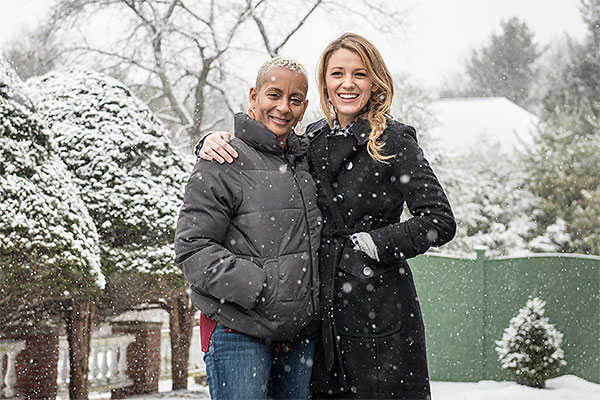 For all of the great intent of “Half the Sky,” the last big effort for public television by Nicholas Kristof, based on the work by he and his wife Sheryl WuDunn, on gender-based violence worldwide, there were some questions.
For all of the great intent of “Half the Sky,” the last big effort for public television by Nicholas Kristof, based on the work by he and his wife Sheryl WuDunn, on gender-based violence worldwide, there were some questions.
“One [was]: ‘So what about the US?’ since ‘Half the Sky’ focused on the rest of the world?” he says. “And secondly, so what can I do?'”
So a lot of the three part documentary that begins tonight on “Independent Lens” (PBS, 10 p.m., check local listings) takes place in the U.S., where prostitution, now under the rubric of “human trafficking” occurs in such nearby places as Nashville and Boston. to investigate, Kristof has incorporated celebrities, whose presence might bring more viewers, but who also bring something to the narrative.
Ashley Judd, who surveys Nashville, brings an empathy borne of her own abuse; and Blake Lively serves as a stand-in for a public who may not be aware of the sobering statistics.
“When we were first thinking about this, we had a debate about did we want to have celebrities play a role in this, and we were worried a little bit that this might be perceived in some quarters as cheapening causes that we care deeply about,: said Kristof, whose main job is columnist for The New York Times. “In fact, I think the celebrities played a couple of really important roles. One is that they really function as a proxy for the viewer. They are there. They’re very relatable.
“And the second is that they carry the burden of having cameras follow them. Reporters follow them everywhere. And here we have people who have the burden of never having cameras around, of never being written about, of never being filmed, and when Ashley or Blake Lively or the others can bring those cameras and shine it on some people who desperately need that attention, that is one step toward getting these issues addressed.”
The cameras catch some fairly amazing things, from a former prostitute catching up with her pimp on the street as she otherwise is trying to talk other women out of the trade, and Lively, there when a woman finds her runaway daughter on an online prostitute listing.
When I asked Kristof in a session at the TV Critics Association winter press tour last week if his work is having an effect, he said, “There is some progress on some of these issues. Domestic violence is one that there is no question it is being treated more seriously than it was a generation ago, when, for example, half of Americans said in a survey that it was sometimes okay to beat a wife with a belt or a stick. Now nobody would say that. But still, one woman dies every six hours in this country from domestic violence.
“In trafficking, johns are sometimes arrested now. Pimps are sometimes arrested. But when you have so many kids who are trafficked and yet we, as a society, tend to blame the victim, and still so often arrest the victim, then I think we still have a lot of heavy lifting to do.”
Part of what “A Path Appears” hopes to show is that there is a way out of these problems, Kristof said.
“We wanted to underscore that there are not only problems, but also solutions. And these aren’t silver bullets, but they are, in a sense, silver buckshot. A lot of interventions that will begin to make a difference.
“When a middle-class teenage girl, blonde girl goes missing, then CNN will do a missing blonde story,” he says. But he adds, “Every day there are every year there are 1.6 million teenagers who who are either runaways or are thrown out of the house get no attention.”
“A Path Appears,” which begins tonight, continues on Feb. 2 and 9 on PBS.